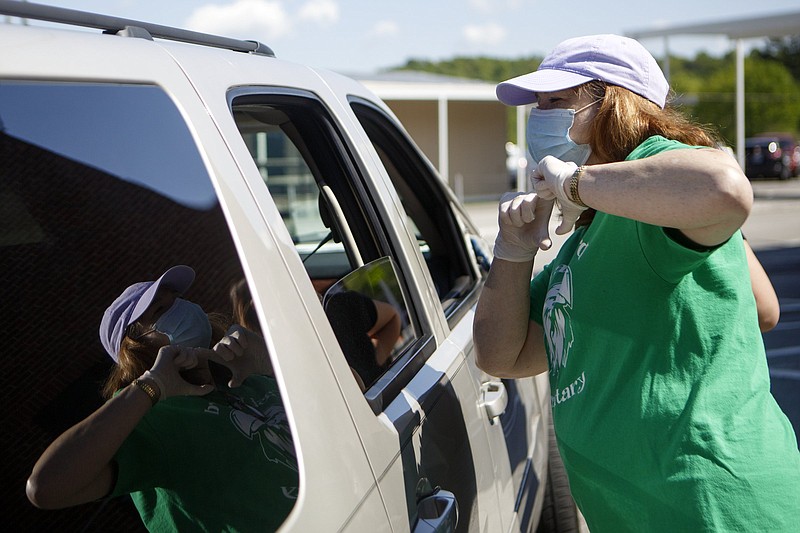The work to process and heal from the catastrophic storms of Easter Sunday in the midst of the COVID-19 crisis has begun for many residents in the Chattanooga region.
Communities across Hamilton County and Northwest Georgia are reassembling after tornadoes killed at least ten people and injured dozens of others April 12. In the aftermath, Hamilton County's public health leaders continue to promote social distancing guidelines, posing a challenge of navigating recovery and communion efforts for those who are displaced or affected by the storms.
When people are strained by multiple stressful events at once, their psychological well-being may also be at risk.
Organizations like the Mental Health Association of East Tennessee are considered first responders in aiding residents who are experiencing the psychological effects of COVID-19, as well as other stressful and traumatic events. The organization screened 367 people through their free mental health screening program in March - that's twice as many people as the previous month, according to CEO Ben Harrington.
For the first fifteen days of April, the organization had already reached the same number of screenings as it did in all of March.
"All that indicates is that people in our communities are scared, and the anxiety from the novel virus is taking a significant toll," Harrington said.
If symptoms of anxiety persist for a few weeks or more, those who were not previously living with a mental health diagnosis may begin to develop enough symptoms to be diagnosed with anxiety or post-traumatic stress disorder, Harrington said.
"For those who are in the Chattanooga area, living through a tornado or a series of recurring tornadic storms can certainly cause a traumatic experience for individuals– in addition to dealing with a virus," he said.
Harrington urges residents to be mindful of their psychological health and to seek help in recognizing the symptoms of anxiety or depression. The Mental Health Association of East Tennessee offers a toll-free number of 877-642-3866, which provides various resources for people in need.
"People need to take stock in the fact that their worries are real, and a lot of other people are experiencing the same thing," Harrington said. "Residents can call our number, which is a resource that's going to connect you to other resources in your location so you'll have someone taking you to a health station or you'll see someone face-to-face in a quick manner."
Many Chattanooga area organizations have stepped up to help with the effects of COVID-19 and the storms.
The Lee University Marriage and Family Therapy Center is offering free phone appointments called "Caring Calls," offered by graduate students in marriage and family therapy and school counseling. The purpose of the calls is to help anyone with self-care ideas and activities in response to the COVID-19 situation. This includes strategies to lower stress, worry and anxiety.
The center says that trouble associated with the stress of this pandemic can include an inability to stop watching the news and social media, a lack of motivation, stress eating, loneliness or an intensified struggle with depression and anxiety. Those interested in finding out more about the caring calls or signing up should go to leemft.org.
The president and CEO of First Things First, Julie Baumgardner, recommends beginning the process of addressing your feelings. First Things First is a local nonprofit that provides resources on how to have healthy relationships.
"It's very important to try and acknowledge your feelings and avoid telling yourself, 'I shouldn't be feeling this way,'" Baumgardner said. "Even journaling once a day, writing down some of your thoughts and emotions, can bring you an appreciation for what happened during those days, and it will help you be able to look to the future and move forward."
KNOW THE WARNING SIGNS
– Excessive worry or fear– Prolonged irritability or anger– Trouble concentrating or racing thoughts– Rapid changes in mood– Too much sleep or not enough– Excessive use of alcohol or drugs– Changes in appetite– Difficulty perceiving or understanding reality– Inability to enjoy things you once enjoyed– Thoughts of dyingSource: Southeast Mental Health Crisis Taskforce
24/7 CRISIS SUPPORT LINES
– Volunteer Behavioral Health Care System - Mobile Crisis (adults) 800-704-2651– Youth Villages- Mobile Crisis (child and teen) 866-791-9225– National Suicide Prevention Lifeline 800-273-8255– Crisis Text Line Text TN to 741 741
